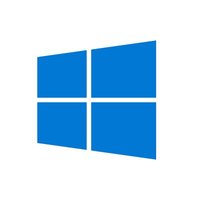Need advice about which tool to choose?Ask the StackShare community!
Kubuntu vs Manjaro: What are the differences?
Key Differences Between Kubuntu and Manjaro
Kubuntu and Manjaro are both popular Linux distributions, but they have distinct differences in terms of their base, package management, user interface, stability, release cycle, and community support.
Base: Kubuntu is based on Ubuntu, which uses Debian as its base. On the other hand, Manjaro is based on Arch Linux, providing users with a more bleeding-edge experience and access to the Arch User Repository (AUR).
Package Management: Kubuntu uses the Advanced Packaging Tool (APT) for package management, while Manjaro utilizes the Pacman package manager. APT is known for its robustness and vast software repository, while Pacman is known for its simplicity and speed.
User Interface: Kubuntu features the KDE Plasma desktop environment as its default, offering a highly customizable and feature-rich interface. In contrast, Manjaro provides a choice of desktop environments, including Xfce, GNOME, and KDE Plasma, allowing users to select the one that suits their preferences.
Stability: Kubuntu is known for its stability and reliability, as it goes through rigorous testing before each release. However, Manjaro is more cutting-edge and may have occasional instability issues due to its rolling release model, where updates are continuously delivered.
Release Cycle: Kubuntu follows a regular release cycle, with new versions being released every six months. In contrast, Manjaro follows a rolling release model, providing users with up-to-date software and continuous updates, eliminating the need for version upgrades.
Community Support: Both Kubuntu and Manjaro have vibrant communities that offer support and assistance to users. However, Kubuntu benefits from the extensive Ubuntu community, which provides a wealth of resources and documentation, making it beginner-friendly. Manjaro also has an active community but may require a bit more technical knowledge.
In summary, Kubuntu provides a stable and beginner-friendly experience based on Ubuntu, whereas Manjaro offers a more cutting-edge experience with its Arch Linux base, rolling release model, and wider desktop environment choices.
I liked manjaro a lot, the huge support it has and the variety of tools it provides is just awesome. But due to its parent platform being Arch Linux it has bleeding-edge technology and that meaning, we get updated 'daily', and if we keep updating the system daily, due to the bugs in the recent updates the system sometimes used to crash, this made the OS really unstable. However, one can avoid such crashes using periodical and careful system/package updates. I now use LinuxMint which is based on Ubuntu, and this OS is completely stable with reliable(mostly tested) updates. And, since this OS is backed up by UBUNTU the concerns/questions one can encounter while using the OS can be easily rectified using the UBUNTU community, which is pretty good. Though this is backed up on UBUNTU it most certainly does NOT include the proprietary stuff of UBUNTU, which is on the bright side of the OS. That's it! Happy Computing.
Pros of Kubuntu
- Highly customizable5
- Large community5
- Very Stable4
- Good for beginners4
- Lightweight4
Pros of Manjaro
- Good for beginners9
- AUR is huge8
- Very stable6
- Friendly community5
- Pacman is very fast3
- Highly customizable2
- Nice-looking bootloader2
Sign up to add or upvote prosMake informed product decisions
Cons of Kubuntu
- Unstable2
Cons of Manjaro
- Would you give your grandma linux?6
- Occasional freezes if wrongly configured3
- Not highly stable2
- High data requirement frequently1


























